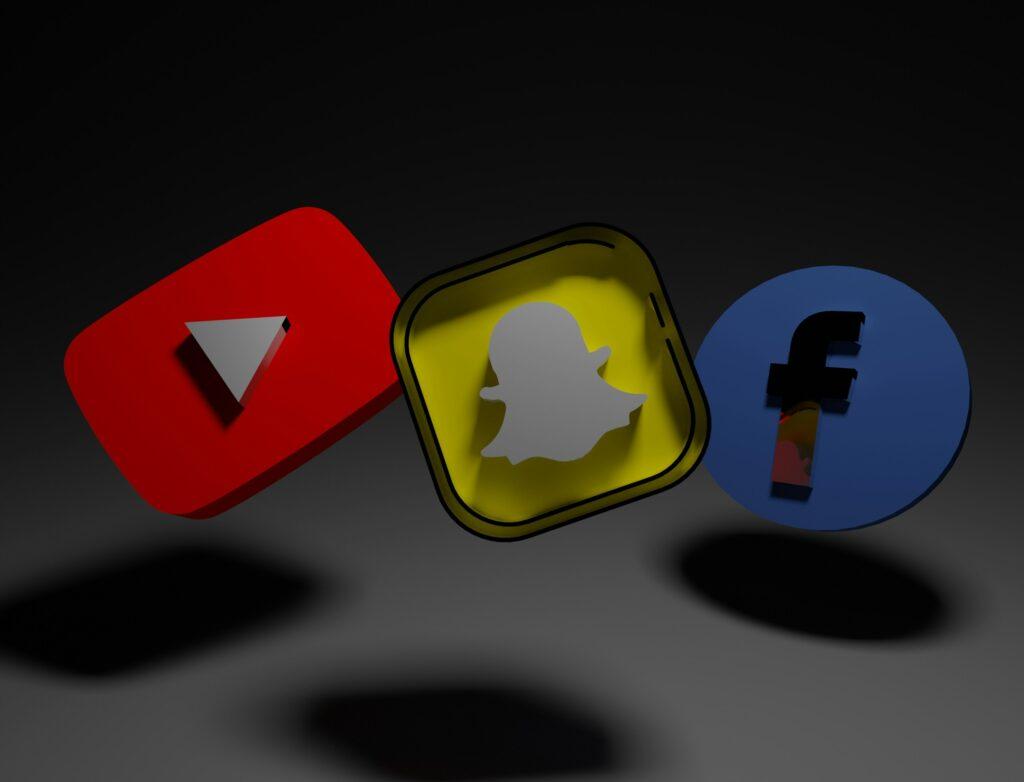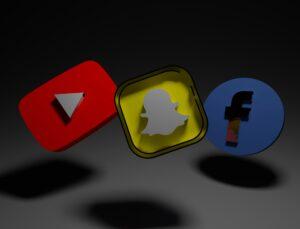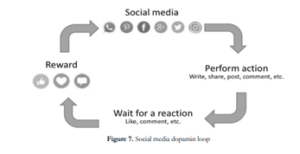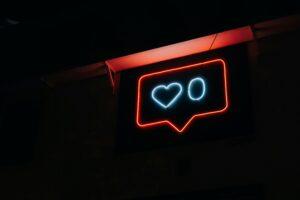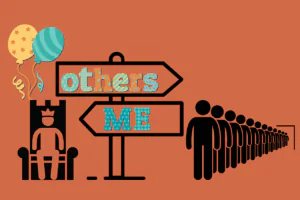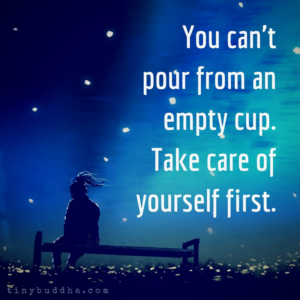guest blog by Rebecca Muir
My Experience with Social Media
In 2010, I returned home from my undergraduate studies to a world where my peers were fully immersed in social media. As long time hold out, I finally gave in to the trend and made myself a Facebook account. I never wanted nor had thousands of “friends” following me as some of my real-world friends did, but my small group of online friends and family were enough to keep me engaged in a digital world of social media anxiety, fueled by constant comparison and judgement.
As a rudderless college graduate in a less than ideal economy, I coopted the life goals that my cousins and friends kept sharing proudly on social media. Get married! Buy a house! Have kids! These things were all that I could think about because that was all that I kept seeing on my Facebook feed.
As a driven person generally, I met these socially prescribed life goals with urgency. My fiancé and I bought a condo in 2012, were married in 2013, and had a child in 2015. Only there was a problem – one, very serious problem. These life goals were not mine. I was seeking direction and purpose, and the highly influential power of social media funneled yet another young adult into its feedback loop.
To make a long story short, my marriage became abusive and dangerous, and the divorce process was one of the hardest times in my life. Suddenly, my Facebook account was an open window into my life – a window that I no longer wanted everyone looking through. I had to start blocking people and trying to adjust my privacy settings in a futile attempt to keep my private life private. Ultimately, after several more years of trying to control who had access to my life online, I made the choice to delete my account permanently.
When I first deleted my social media account, I was physically uncomfortable without constant access to it. I would find myself picking up my phone absent mindedly to check my feed only to be jolted back to the reality that I did not have the app on my phone anymore. I had real-life friends and family members reach out in genuine concern that I might not be okay or wondering if I had blocked or unfriended them. I carried an insecure, empty feeling for some time before it passed. It did, however, pass, and I found a new level of peace and privacy living life off social media.
Related Reading: What Causes Anxiety?
These days, the people who know what’s going on in my life are the people with whom I choose to directly share this information. I no longer have experiences like running across an old friend from middle school, only to realize we have nothing to talk about because we are only Facebook friends, no longer friends in real life now. While my personal experience with social media has been for the most part negative, in the context of society at large and mental health, there are many other important considerations to be made.
Social Media Pros and Cons
Social media can connect people across the globe, enable us to keep in touch with family near and far, and bring community members together in the interest of shared values and causes. It is a digital platform that can broaden our capacity to connect with others.
Conversely, social media also has the capacity to become addictive, as it operates within the brain’s reward center in a dopaminergic feedback loop.
An international research study from 2018 concluded that neurological and psychiatric tests on social media users showed similar biological and psychological symptoms of drug and alcohol addictions. This study further states that social media is damaging to the social functioning of individuals and society at large in certain areas.
Does social media cause anxiety? According to a 2017 article in the Journal of Affective Disorders, social media use has been shown to have a positive correlation to anxiety disorder symptoms.
This research article examined young/emerging adults, a group already at high risk for anxiety disorders, and analyzed data to discover this correlation. A positive correlation, in this scenario, means that as social media use increases, negative anxiety symptoms increase as well.
Related Reading: Social Anxiety Therapy
This same article notes that the experience of using social media may facilitate avoidant coping strategies and social isolation, which may in turn promote psychopathology.
Additionally, this article also denotes specific facets of social media that contribute to stress responses and increased anxiety:
- Receiving negative feedback or cyber-bullying.
- Increasing awareness of stressful events in other people’s lives.
- Internalizing the pressure to maintain social network updates.
- Being bombarded by communication and information overload.
- Triggering negative social comparisons such as believing other people are happier and live better lives.
Although this list is by no means exhaustive, it highlights some major challenges posed to an individual’s mental health that are uniquely found in the digital worlds of social media.
How to Manage Social Media Anxiety
There are several ways in which you can modify your social media use to reduce negative mental health effects like anxiety and to establish healthy user habits. A good place to start is with mindfulness! First, try observing how much of your social media use is intentional versus unintentional. This is a great way to start connecting with some of the unconscious behaviors you may or may not find yourself doing.
Next, you can try limiting the access you have to social media and how much access social media has to you. This means turning off notification pushes on social media apps, putting your phone in “do not disturb” mode after a certain time at night and/or before a certain time in the morning, or perhaps having a low- or no-fi day once a week or once a month. These suggestions are all great ways to help limit the emotional and mental health toll of being constantly “plugged in” and/or connected to the world at large.
Lastly, if social media is contributing greatly to your anxiety symptoms, it may be wise to seek professional help. At Life Care Wellness we have many wonderful therapists who have experience assisting clients with social media anxiety with tools like mindfulness, EMDR, Somatic Experiencing, Rapid Resolution Therapy, and more. If you are struggling with a mental health challenge(s), please contact us at our Glen Ellyn, Chicago (Jefferson Park), or Sycamore offices to connect with a therapist today.
Rebecca is currently pursuing her MSW at Tulane University. She loves incorporating mindfulness-based strategies during therapy and encourages her Life Care Wellness clients to use them outside of sessions to help create a more peaceful, joy-filled life.

